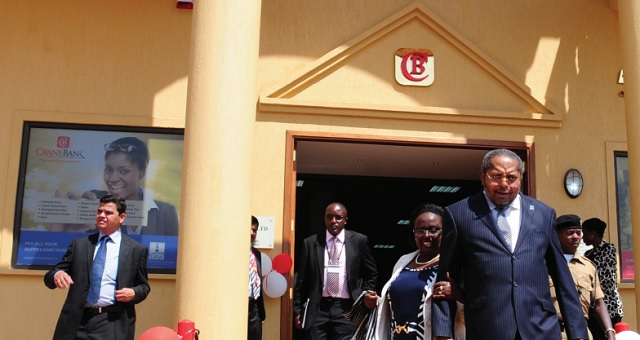
Who is leaking?
But the endless slew of leaked documents from both the central bank and several commercial banks is threatening the integrity of the whole financial sector, and the jobs of Mutebile and Kasekende could be on the line.
By the time of the meeting with Museveni’s contact, a trove of documents purported to expose Kasekende’s wealth. There were also fears it would be a matter of time before documents exposing Mutebile too also emerge.
Amongst others, the documents showed that as scrutiny intensified, Kasekende transferred some of his properties into the names of another person who will remain unnamed. They also revealed a host of companies he has shares in, his financial transactions over the years, and those of his wife Edith Kasekende.
The Independent could not report about these documents earlier because it could not confirm their veracity. The Independent has since confirmed that these documents ended up at the door of the IGG and are at the core of her investigations.
There is a pattern too. The leaked documents all emerged after the take over and sale of Crane Bank to DFCU.
The first set of documents, for example, showed that the former Executive Director Banking Supervision, Justine Bagyenda who was directly in charge of the take over and sale of Crane Bank, is wealthier than previously known. This has raised querries about the source of her wealth.
There are also documents purporting to show the bank account details of Juma Kisaame, the Managing Director of DFCU; the bank that acquired Crane Bank. Then another set of documents and reports have also emerged showing that DFCU is allegedly in trouble.
Finally, there is the case of DFCU instructing its lawyers to issue Rajiv Ruparelia, the son of Sudhir, with an intention to sue accusing him of being behind a campaign to tarnish their name through a series of articles published online.
Rajiv, who has recently taken more charge running his father’s empire, has hit back. He has threatened to sue DFCU for allegedly abusing the customer-client confidentiality by revealing some details he shared with them as a client, to their lawyers and later, the public in the intention to sue shared publicly.
The Sudhir’s family is clearly not happy about the takeover of their bank. But are they behind the exposure of those who were at the centre of the transaction? What about claims the documents could be leaking from the office of the IGG?
Kasekende played a central role in this transaction. In meetings at State House, as Sudhir fought to save his bank, Kasekende was on the other side with Bagyenda, BoU lawyers, Attorney General William Byaruhanga and central Bank Governor Tumusiime Mutebile.
Mutebile was sickly and while he attended these meetings, Bagyenda and Kasekende were completely in charge of the hammer that would later crash Crane Bank.
The first sign that Mutebile was not fully siding with especially Bagyenda, appeared in a Daily Monitor interview. In the interview, Mutebile said while he would take responsibility for what went wrong with Crane Bank, he was not criminally culpable.
When asked who was, Mutebile replied: “Ask the (BoU) executive director for supervision (Bagyenda)”.
Insiders say Mutebile fell out with Bagyenda because she hid critical documents from him regarding the Crane Bank matters. According to insider sources, when he appeared before a committee appointed by President Museveni to answer questions over a controversial reshuffle he made in February, in which he ejected Bagyenda, Mutebile repeated the same.
Among others, he told the committee, that senior bank officials were in the habit of hiding information from him.
Katuntu’s committee
Museveni convened the committee led by Abdul Katuntu, the chairman of the parliamentary committee on Commissions, Statutory Authorities and State Enterprises (COSASE) after the IGG indicated she was ready to probe the central bank. Museveni preferred a quieter investigation. So he tasked Katuntu’s committee to get to the bottom the crisis around the reshuffle but keep BoU matters out of the press.
This came as a surprise to those who thought President Museveni would attempt to salvage the reputation of the central bank by taking action against its feuding senior managers.
In any case, Museveni has failed to put a lid on the leaks to the press.
It has emerged that while Mutebile did not get into names when he met with the committee, insiders say he was possibly referring to Bagyenda and her allies when he said senior official kept him in the dark.
BoU records seen by The Independent reveal that Bagyenda authorised the law firm, MMAKs Advocates as the Transaction Advisor for the Crane Bank sale and also authorised the audit firm PriceWaterHouse Coopers to carry out a forensic audit of Crane Bank. Insiders say when the report came out, Bagyenda did not share it with Mutebile in its entirety. Mutebile was later riled when he learnt about the existence of the entire document and received a copy from another source.
 The Independent Uganda: You get the Truth we Pay the Price
The Independent Uganda: You get the Truth we Pay the Price





